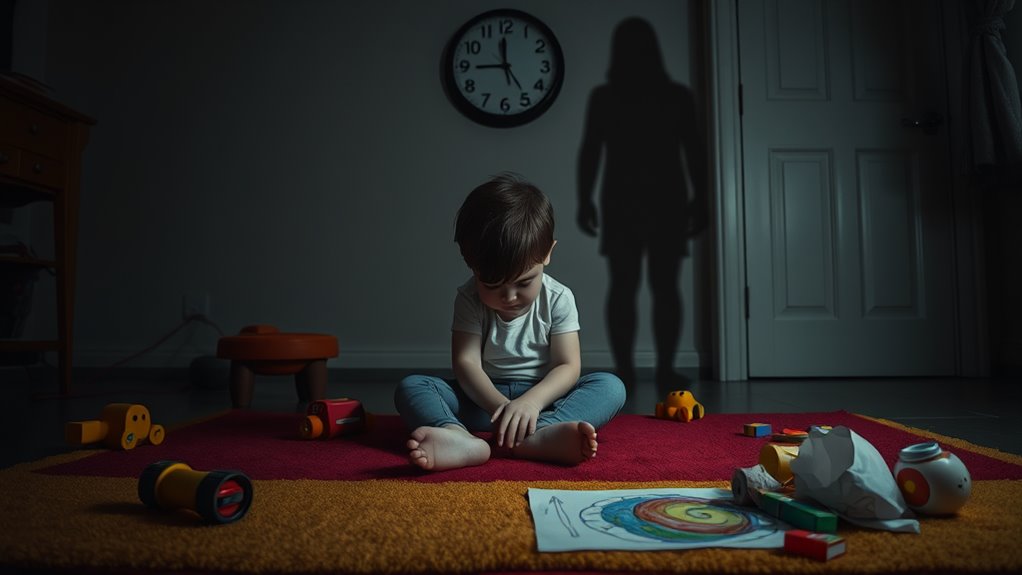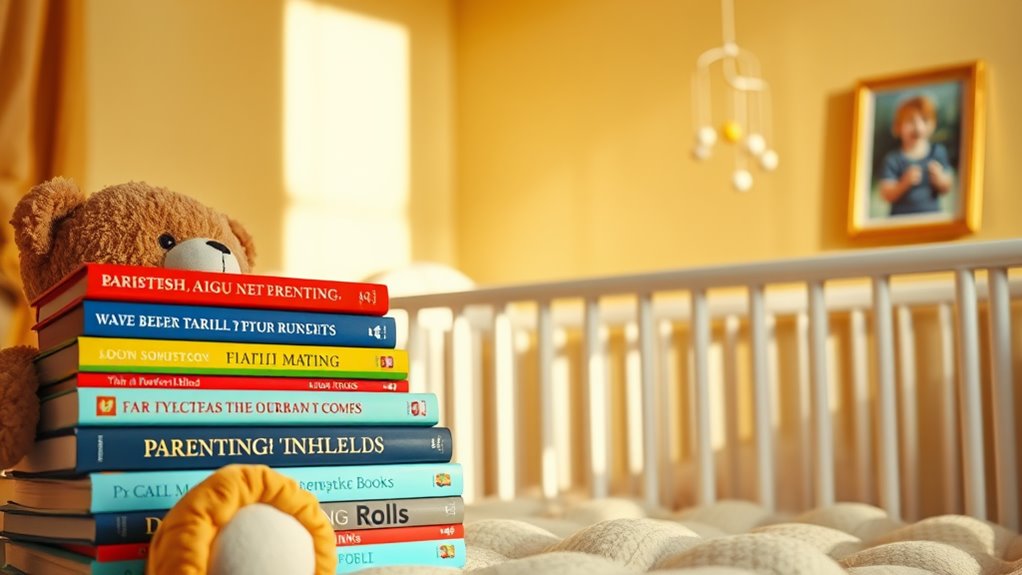5 Warning Signs Your Child’s Development Is Off Track!
When it comes to your child’s development, be on the lookout for five key warning signs. First, delayed speech milestones, like babbling by age one, can indicate a problem. Second, if your child consistently avoids social interactions or prefers solitude, that’s worth noting. Third, struggles with motor skills, both gross and fine, can suggest developmental concerns. Fourth, persistent behavioral issues like aggression or withdrawal might signal deeper problems. Lastly, any significant learning difficulties can hinder academic success. Keeping an eye on these signs will help you guide your child toward the support they may need. Explore further to discover more insights.
Delayed Speech Milestones
When it comes to your child’s development, delayed speech milestones can be a significant concern. You might notice that your child isn’t babbling or forming simple words by the time they reach their first birthday. By 18 months, most children can say a few words and understand basic commands. If your child isn’t doing this, it’s time to pay closer attention.
As your child approaches two years old, they should typically have a vocabulary of about 50 words and begin combining them into simple phrases. If they’re still mostly silent or using gestures instead of words, you may want to seek guidance. Delayed speech can affect not only communication skills but also social interactions and self-esteem.
You can support your child’s speech development by engaging them in conversations, reading together, and encouraging them to express their thoughts. If you’re concerned about their progress, don’t hesitate to consult a pediatrician or a speech-language pathologist. Early intervention can make a significant difference, helping your child catch up and thrive in their communication skills. Trust your instincts—taking action now can lead to better outcomes later.
Social Withdrawal Patterns
Social withdrawal can be a red flag in your child’s development, signaling potential emotional or behavioral issues. If you notice your child consistently avoiding social interactions, it’s essential to pay attention. While some kids naturally prefer solitude, a marked change in their social behavior might indicate deeper concerns.
Look for signs like reluctance to join group activities, disinterest in playdates, or an unusual focus on solitary activities. If your child used to engage with peers but now seems more comfortable alone, this shift warrants your attention. Social withdrawal can stem from anxiety, depression, or other emotional challenges.
You should also consider how your child interacts with family members. If they become increasingly withdrawn even in familiar settings, it’s a critical point to address. Open communication is key. Encourage your child to express their feelings and fears, and reassure them that it’s okay to share their experiences.
If these patterns persist, seeking guidance from a professional can provide valuable insights. Early intervention can make a significant difference in your child’s emotional well-being and social skills, helping them reconnect with the world around them.
Motor Skill Challenges
Children’s development is multifaceted, and alongside social withdrawal, motor skill challenges can also signal underlying issues. If you notice your child struggling with basic movements, it might be time to pay closer attention. Delays in gross motor skills, like running or jumping, can impede their ability to engage in play and physical activities. Likewise, fine motor skills, which involve hand-eye coordination, are crucial for tasks like writing and using utensils.
You might see signs such as difficulty catching a ball, trouble climbing stairs, or challenges with activities that require precision, like coloring or buttoning shirts. These challenges can impact your child’s self-esteem and social interactions, as they may feel left out during group activities.
It’s important not to dismiss these signs, as early intervention can make a significant difference. You should consider consulting a pediatrician or a child development specialist if you’re concerned. They can assess your child’s motor skills and recommend appropriate therapies or exercises. By addressing motor skill challenges early on, you can help your child build confidence and improve their overall development.
Behavioral Concerns
Behavioral concerns can often indicate deeper developmental issues in your child. If you notice persistent patterns of aggression, extreme withdrawal, or intense tantrums, it’s essential to pay attention. These behaviors might not just be typical childhood phases; they could signal underlying challenges that need addressing.
You should also watch for signs of anxiety or fearfulness that seem disproportionate to the situation. If your child struggles to connect with peers or frequently exhibits difficulty following rules, these could be red flags worth investigating. Consistent disruptions in social interactions or trouble managing emotions can hinder your child’s growth in various areas.
It’s important to engage with your child about their feelings and behaviors. Encouraging open communication can be vital in understanding what might be troubling them. Remember, every child develops at their own pace, but significant deviations can warrant professional guidance. If you find these concerns persist despite your efforts, consulting with a pediatrician or child psychologist can provide clarity and support. By addressing behavioral issues early, you can help your child thrive emotionally and socially in their formative years.
Learning Difficulties
When it comes to learning difficulties, recognizing early signs can make a significant difference in your child’s development. You might notice your child struggles with reading, writing, or math compared to their peers. They may often forget instructions or have difficulty following through on tasks. These challenges can manifest as frustration or a lack of interest in schoolwork.
Pay attention if your child avoids homework or seems disorganized. Is it hard for them to stay focused during lessons or to comprehend what they read? These could be indicators of a learning difficulty. It’s also crucial to observe their social interactions; if they struggle to understand jokes, idioms, or social cues, it may reflect underlying challenges.
Don’t hesitate to talk to your child’s teacher or a specialist if you suspect something’s off. Early intervention is key. They can provide tailored strategies and resources to help your child thrive. Remember, recognizing these signs isn’t about labeling your child but rather about giving them the support they need to succeed. Taking action now can pave the way for a brighter educational journey ahead.
Frequently Asked Questions
What Age Should I Start Monitoring My Child’s Development?
You should start monitoring your child’s development from birth. Regular check-ins during early milestones help you identify any concerns. Keep track of their growth, communication, and social skills to ensure they’re on the right path.
How Can I Support My Child if I Notice Delays?
If you notice delays, talk to your child’s doctor for guidance. Engage them in play, provide stimulating activities, and be patient. Celebrate small achievements to boost their confidence and reinforce a positive learning environment.
Are There Specific Tests for Developmental Delays?
Yes, there are specific tests for developmental delays. You can consult a pediatrician or a child psychologist who may recommend assessments like the Denver Developmental Screening Test or the Ages and Stages Questionnaires to evaluate your child’s progress.
When Should I Seek Professional Help for My Child?
If you notice your child struggling with basic skills, like talking or playing with others, it’s time to seek professional help. Early intervention can make a significant difference in their development and future success.
Can Developmental Delays Improve With Time or Intervention?
Yes, developmental delays can improve with time or intervention. Early support, such as therapy or educational programs, often makes a significant difference. It’s important to stay proactive and monitor progress to ensure your child thrives.





